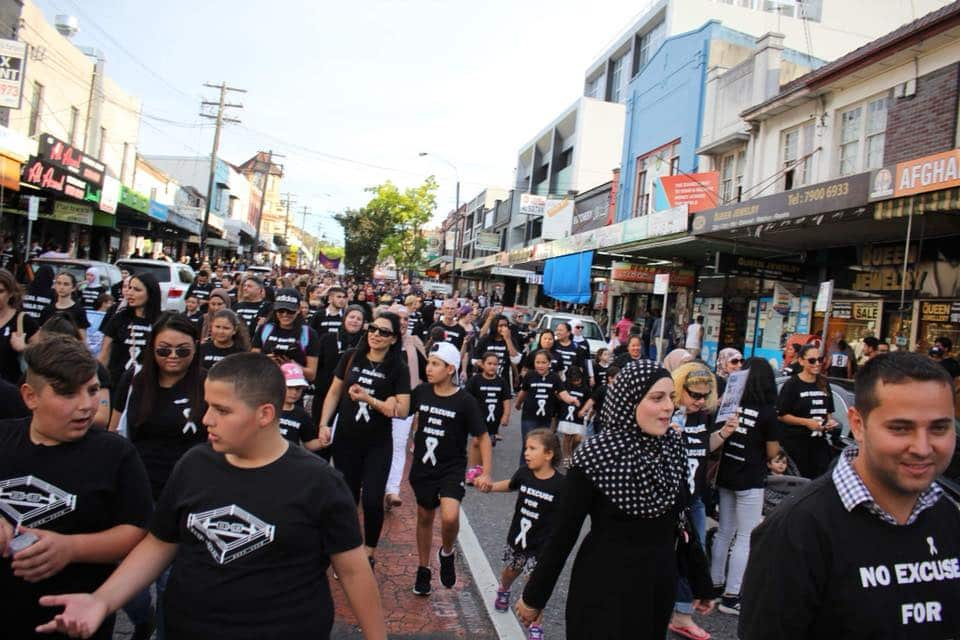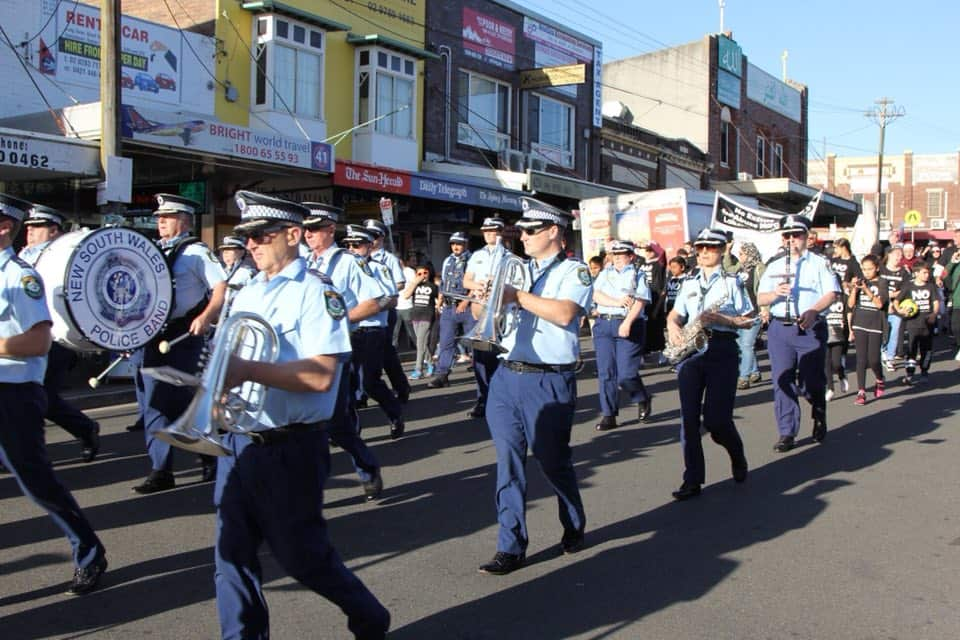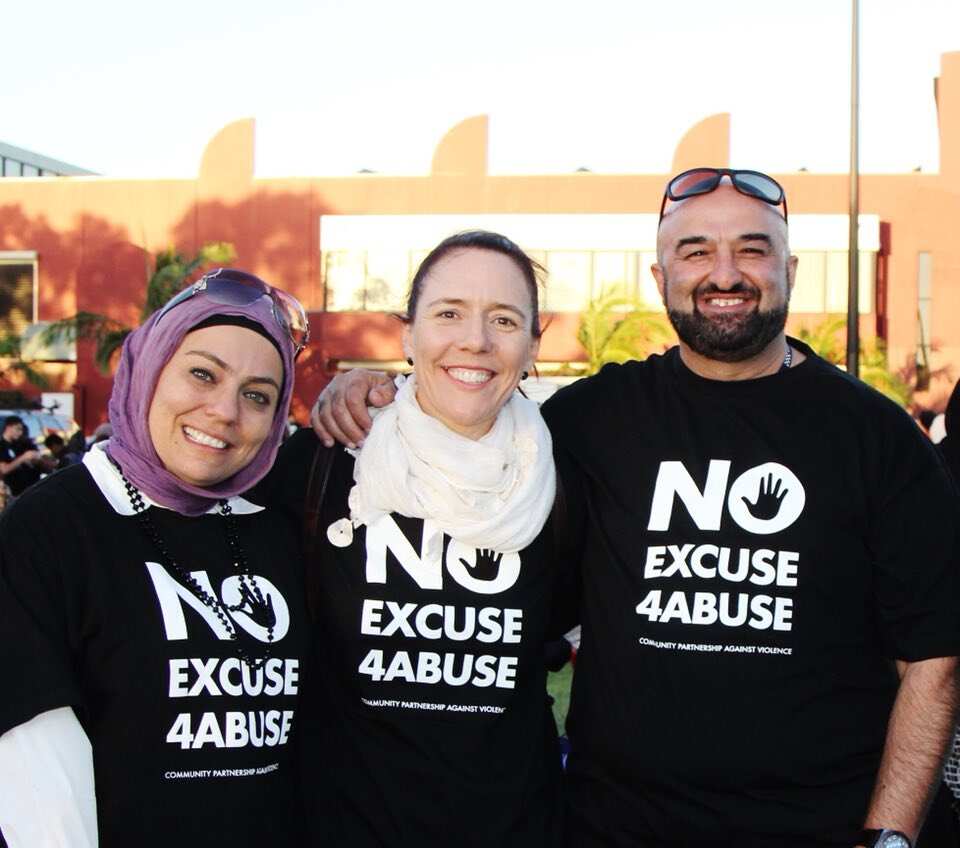The seventh annual ‘No Excuse For Abuse’ March will take place on Friday in Lakemba, in south-west Sydney.
Organised by Campsie Local Area Command and the City of Canterbury-Bankstown Council, the event calls on the community to "stand together" against domestic and family violence.
Lakemba is one of the state's most ethnically diverse suburbs, with more than 33 per cent of residents sharing an ancestry other than Australian, according to census data.
The staging of the march is vital for victims of violence who are yet to seek help, according to Arab woman Sarah*, who tells SBS Arabic24 that the inaugural staging of the march in 2013 inspired her to leave her abusive marriage of 14 years. She says leaving the situation was hard, and that it was the love for her children and an eagerness to maintain the family unit which led to her enduring years of physical abuse.
She says leaving the situation was hard, and that it was the love for her children and an eagerness to maintain the family unit which led to her enduring years of physical abuse.

Source: SBS
“You deal with it because you’ve got children, and you don’t want to remove the children from their home,” she says.
“You don’t want to be a victim, you get through day by day and eventually, years pass by, knowing that something is going to change.”
She says that some women who face domestic violence remain silent because they may feel “scared, lonely, and uncertain about their future”.
“I didn’t really think there would be a change, I was really scared to leave, it was not easy to leave when you got kids and family,” she admits, adding that the community dynamic during the late ‘90s and early 2000s was “totally different” and that there was a stigma surrounding domestic violence victims.

Police marching during the 2018 event. Source: SBS
Turning point
At the march six years ago, Sarah says she saw people who were talking about experiences similar to her own.
“I found people talking about domestic violence and how it is not right, they were there to help, I met people from Campsie Police.”
She says the day marked the turning point in her plight, and it inspired her to begin speaking out against domestic violence. She eventually sought emotional support from people who believed her story and gathered the courage to leave her abuser.
Sarah attends the march every year and helps others as a token of gratitude for those who assisted her during the hard times.
“[It’s important there are] people out there to support and guide them, there are people who believe their stories, the first steps are the hardest.
“When you have community, and the right people around you, you can actually leave domestic violence and absolutely build a new beautiful life.”
Campsie Police Area Command crime manager Detective Chief Inspector Paul Albury says dealing with domestic violence has become increasingly complex in recent years.
“Currently we have about 175,000 calls related to domestic violence incidents every year,” he said, adding that NSW police attend one domestic violence incident every four minutes.
In March, the federal government pledged an extra $328 million to combat domestic violence, with much of that funding going towards safe houses and frontline services.
The funding pledge will lead to greater exposure to domestic violence and would lead to more people coming forward, Detective Albury believes.
“We have identified higher levels of victimisation where women have been murdered, choked, sexually assaulted and in some cases burnt, harassed, and threatened with firearms.
“To respond to the evolving situation, it has become more apparent that more money be invested in victim care management of high-risk domestic violence offenders to curb the behaviour and keep victims safe.”

Source: SBS
Cycle of violence
Detective Albury believes a key issue around domestic violence is that it has been accepted in some households, and asserted through behaviours passed on through generations.
He called for collective action against domestic violence and increased conversations inside families.
“If you see something, you've got to say something, we get calls about domestic violence yet no one wants to get involved or intervene. As a result, people are saying to the perpetrator they condone the behaviour.
“We often see victims are shamed, isolated, and pressured to return to the perpetrators.”
He says in some cases, religious leaders are aware of violence and encourage people to deal with the issue internally, without involving the police.
“These issues can’t be fully dealt with by individuals or religious groups. The groups can provide support for victims and their families but it is important that everybody supports victims and take a stand against offenders and through that, we will see generational changes, and this is why we talk to school students.”
If you or anyone you know is experiencing domestic and family violence anywhere in Australia, and looking for confidential advice and support any time of the day or night, you can call 1800 737 732 or go to https://www.1800respect.org.au/ for online chat and information about services in your area.
1800RESPECT is open 24 hours to support people impacted by sexual assault, domestic or family violence and abuse.
What: ‘No Excuse For Abuse’ March
Where: Lakemba, starting at Gillies St, ending at Parry Park
When: Friday, November 29
Time: 5pm onwards
*Not her real name

